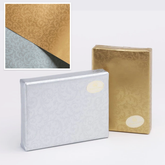Is Biodegradable plastic packaging eco-friendly?

Biodegradable plastic packaging is often heralded as the solution to the thorny issue of single use foils and micro-plastics, but how eco-friendly is biodegradable plastic, really? While in most cases biodegradable plastic packaging is a big step up from traditional plastics in terms of sustainability, their environmental impact is more complex than it might seem at first glance.
In this article, we’ll look at the issue from a couple of different angles to help you make an informed choice when looking for sustainable packaging solutions for your brand.
What are biodegradable plastics?
Biodegradable plastic or bioplastic is a type of plastic that is designed to decompose naturally in the environment – e.g. in a landfill site. This is achieved by enabling environmental microorganisms to metabolise and break down the structure of the plastic product, which isn’t possible for most petrochemical-based plastics.
Most bioplastic packaging products are made of plant-based materials, including corn oil, orange peel, mushroom starch, and plant fibres, and often make use of waste products from agriculture and food processing industries, such as potato and carrot peelings. So on the face of this, biodegradable plastics are an improvement on petroleum products, which often include chemical fillers that can be damaging to the environment when released after the plastic is melted down or exposed to UV radiation.
Environmental issues with biodegradable plastic
Biodegradable plastic products, despite their benefits, are not without their environmental challenges, and their eco-friendly credentials depend heavily on how they are disposed of and the specific conditions of their environment.
- Some bioplastic products require specific conditions to decompose, such as high temperatures or exposure to UV light, so may remain in landfill sites for years or decades, in which time they contribute to pollution and can harm local wildlife.
- Not all biodegradable plastic packaging products are compostable. While all compostable plastics are biodegradable, not all biodegradable plastics are compostable! Compostable plastics break down into nutrient-rich compost that can benefit the soil, while biodegradable plastics often simply break down into smaller pieces, contributing to the wider problem of micro-plastics in the environment. This can lead to the contamination of compost piles and ineffective breakdown of the plastic material.
- Many biodegradable plastic products are difficult or impossible to recycle and need to be sent to specialist facilities or put in general waste. Some bioplastics also cannot be recycled alongside petroleum plastic packaging.
Paper and cardboard – a genuinely biodegradable alternative to plastic packaging
As the technology stands, biodegradable plastic packaging products are a mixed bag. Yes, they can be a good way of reducing the environmental impact of your packaging, but any adoption of biodegradable plastics must come with a carefully considered recycling or reuse policy, to avoid further environmental harm.
A good alternative to plastic packaging is good old-fashioned paper and cardboard, which can fulfil all the roles of plastic packaging and has the advantage of being 100% biodegradable, as long as it is not plastic-coated or embellished with nonrecyclable foils.
Find out more
To find out more about biodegradable alternatives to plastic packaging and how you can improve the environmental sustainability of your brand, please get in touch with Kudos Giftwrap today by clicking here.






